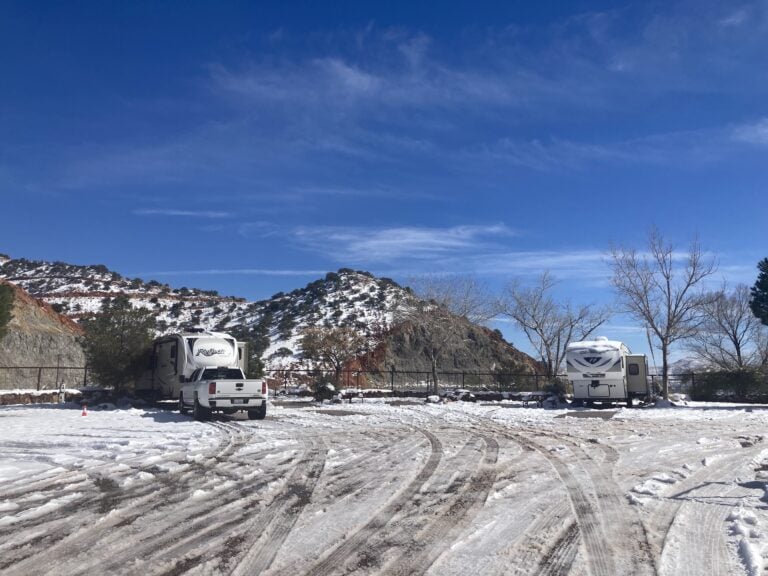This post may contain affiliate links. See our affiliate disclaimer here.
Worried about how your RV water heater will fare in below freezing temperatures? Don’t worry, I’ve got you covered! In this blog post, I’ll tell you if and when your RV water heater can freeze, and how to protect it from damage.
Contents
Will My RV Water Heater Freeze?
If the water heater is not actively being used, the water in your RV water heater can freeze. However, if you are camping and keep your water heater turned on, the water in the tank should stay warm enough to avoid freezing.
How Quickly Will an RV Water Heater Freeze?
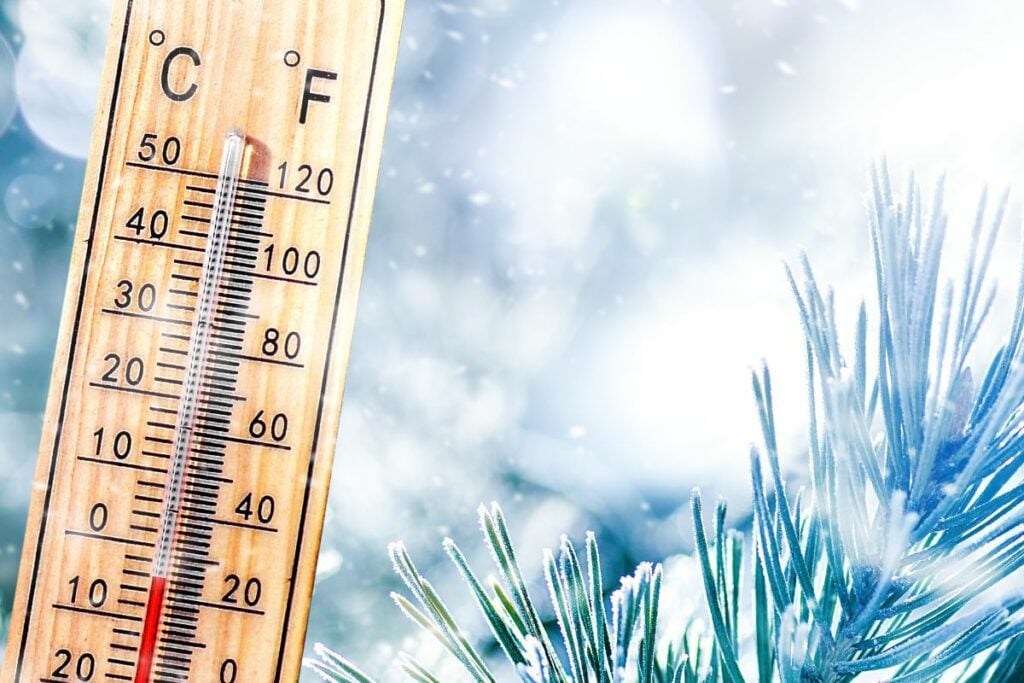
The exact amount of time it will take for the water to freeze depends on the temperature, elevation and the amount of water in the tank. According to sciencequest.org, when the temperature is 32 degrees Fahrenheit, it will typically take a gallon of water about 3 hours to freeze at sea level.
Therefore, the water in your RV water heater could easily freeze in one night of temperatures just below freezing. If the temperature is well below freezing, the water will turn to ice even more quickly.
How to Prevent a Frozen RV Water Heater
In Storage
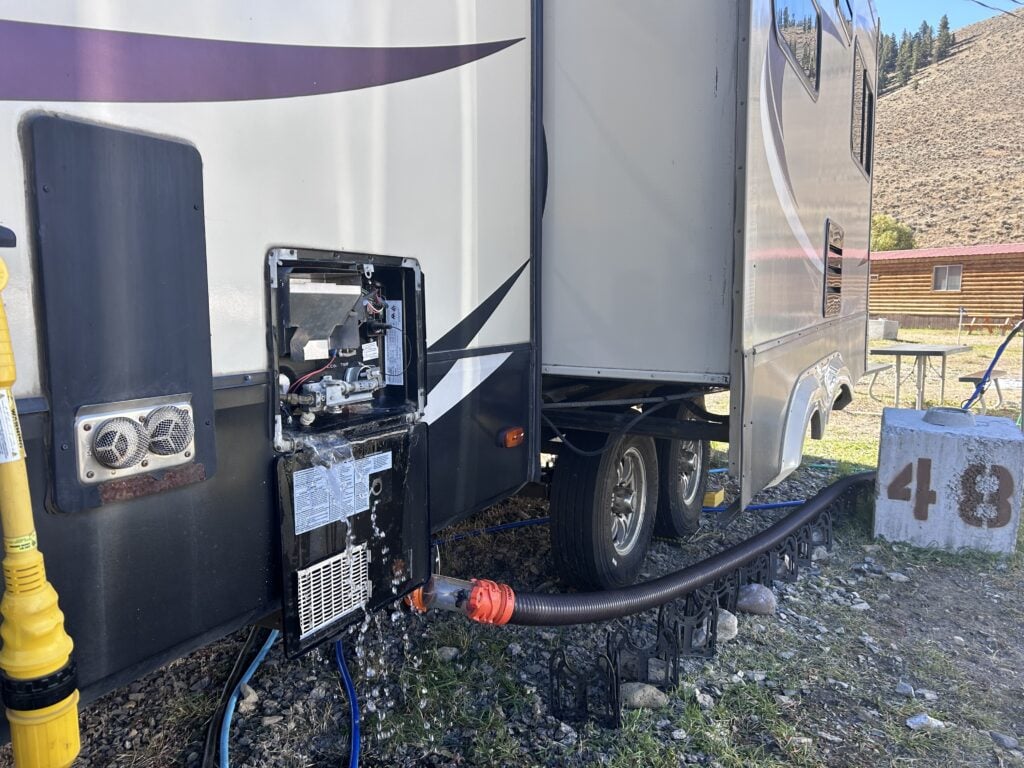
If you are storing your RV for winter in an area where the temperatures are expected to drop below freezing, you must winterize your RV’s water system to prevent damage.
During winterization, RV owners should bypass the water heater before putting antifreeze in the lines. Since there will be no antifreeze in the hot water tank, it must be fully drained to prevent freezing and damage.
Before draining the water heater, turn it off and allow time for any hot water in the tank to cool. Once the water has had time to cool, find the exterior water heater access panel. Then, drain the water heater by removing the plug (or anode rod) and opening the pressure relief valve.
Replace the plug or anode rod before putting the RV in storage. .
While Camping
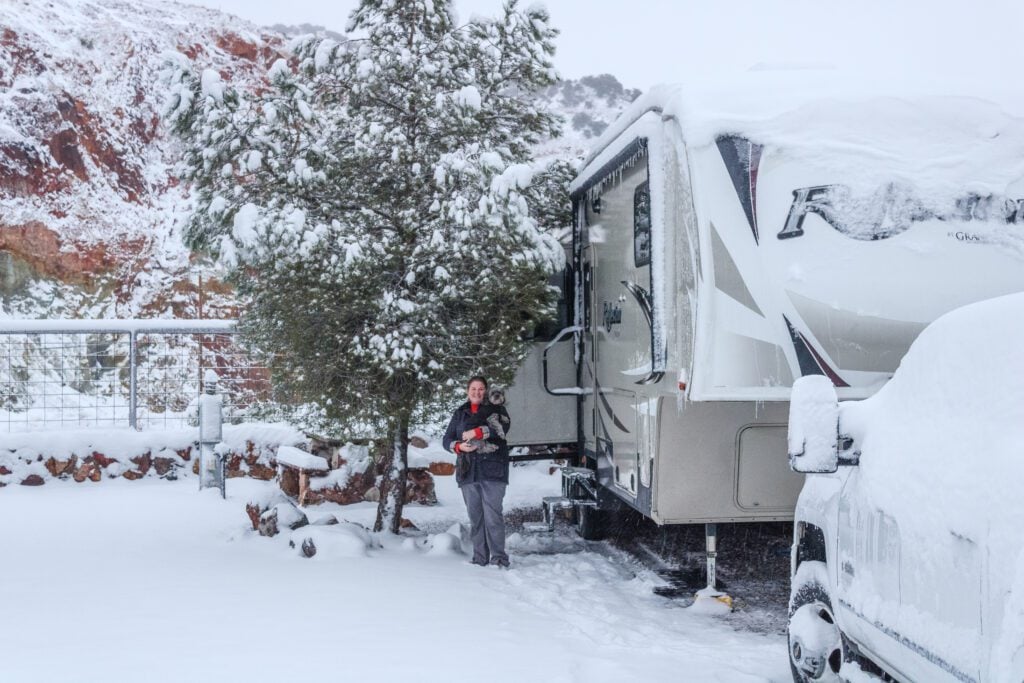
While camping, the easiest way to prevent water in your RV water heater from freezing is to leave the water heater turned on. If the water heater is working properly, it should keep the water warm enough.
If your RV water heater is running on the gas setting, you will need to make sure your propane tanks are refilled before they run out.
See our guide to RV camping in cold weather for tips on keeping your pipes and other RV holding tanks from freezing.
What Happens if My RV Water Heater Freezes?
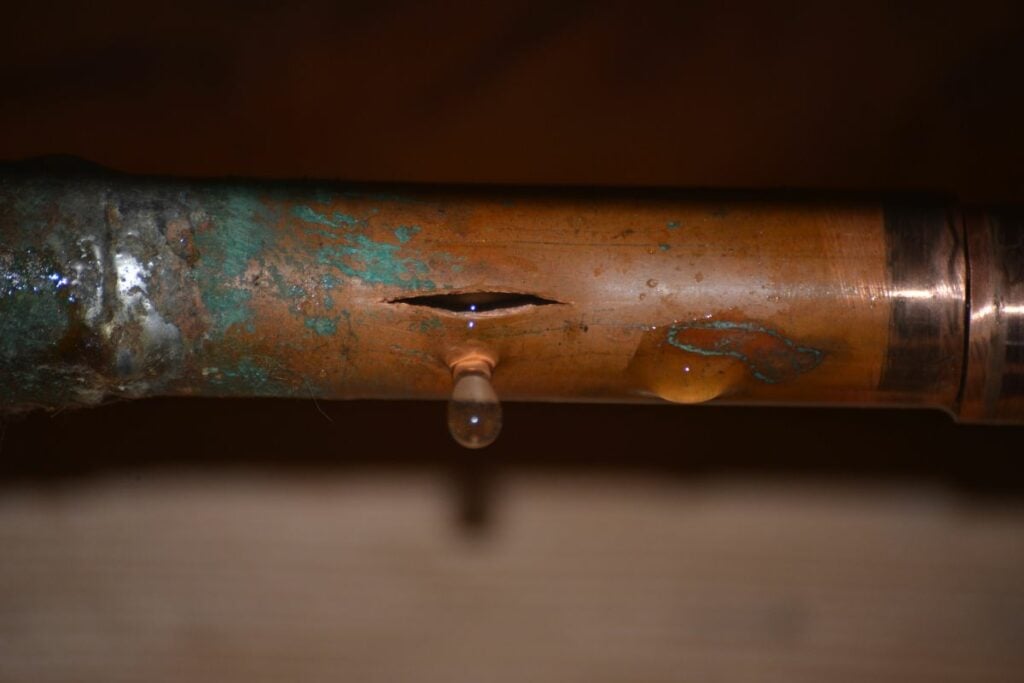
So, what happens if unheated water is left in the RV water heater in cold weather? Well, it won’t be good.
If the weather is cold enough for long enough, the water will freeze. Once the water freezes, it will expand and crack or burst the tank. Then, when the weather warms up and the water melts, the water will leak out of the tank and into your RV, causing further damage.
The water heater will need to be replaced and you will need to repair any damage caused by the leaked water.
What To Do if You Forgot to Drain Your Water Heater
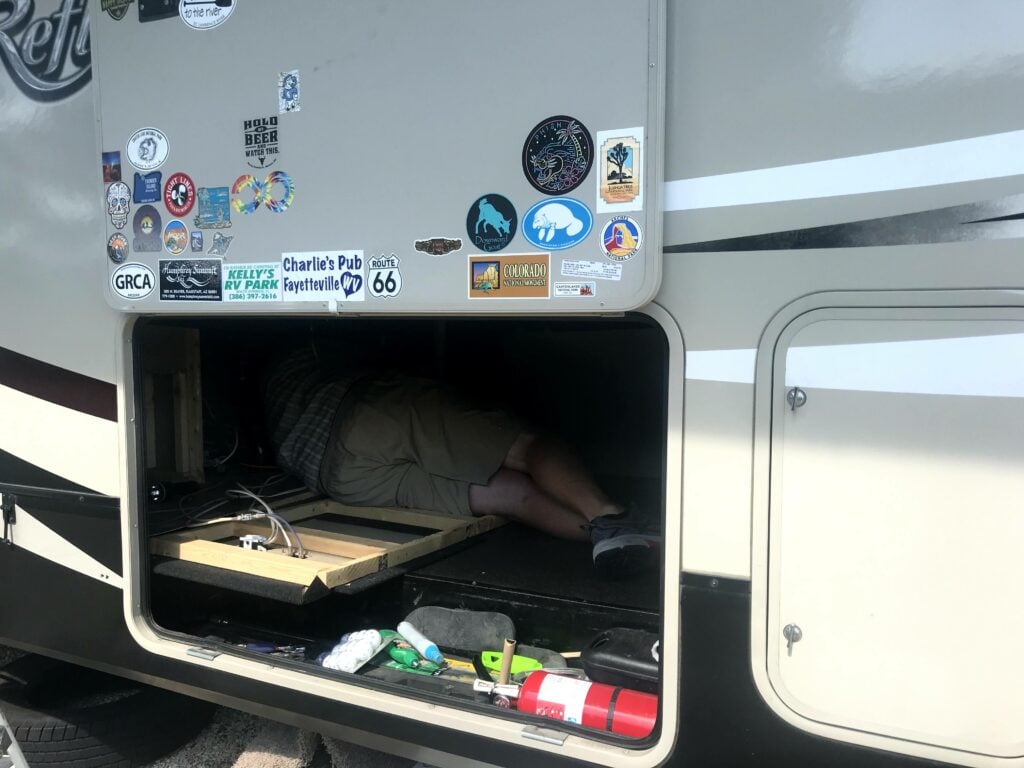
If it is early in the winter, and you realize that you forgot to drain your water heater, go do it immediately. If the water has already frozen and damaged the appliance, go ahead and remove and replace the water heater to prevent further damage to your RV.
If you left water in your RV water heater for the entire winter, you should start your inspection by looking for signs of a water leak near the water heater. Also inspect the appliance itself for any obvious signs of damage. If no obvious signs of a crack are found, go ahead and drain the water heater.
If no water comes out, the water heater has likely burst and leaked. If water comes out, but there are pieces of glass also coming out, the lining of your tank has been damaged, and the water heater will still need to be replaced.
If your RV was stored in mild winter temperatures, you see no signs of damage, and the water drains from the water heater, you may have lucked out. Refill the water heater and turn it on, while closing monitoring it for any leaks.
Thanks for reading our guide to preventing your RV water heater from freezing. I hope you found this article before your water heater was damaged.
Now, head over to our RV maintenance checklist for more tips on preventing damage to your RV.
Happy Camping!

Christina Pate is a seasoned full-time RVer who, along with her husband Justin, has journeyed across the US, Canada, and Mexico. Drawing from her extensive travels, RV repairs and RV renovations, she founded Travels with Ted to guide and inspire fellow RV enthusiasts. Christina is also the co-author of The Owner’s Guide to RV Maintenance and the creator of My RV Log Book.

